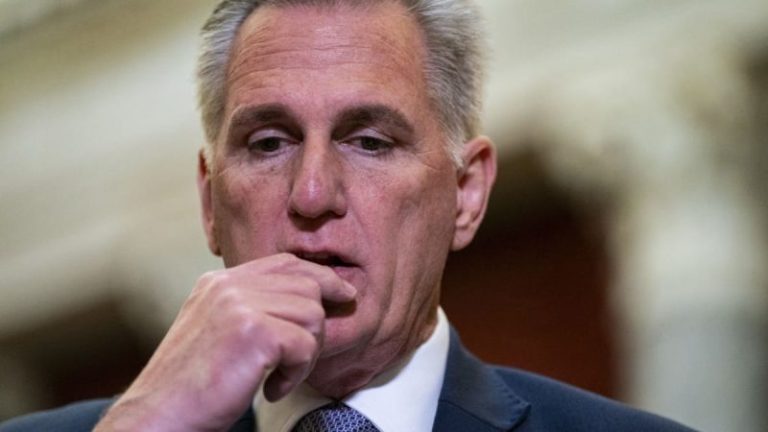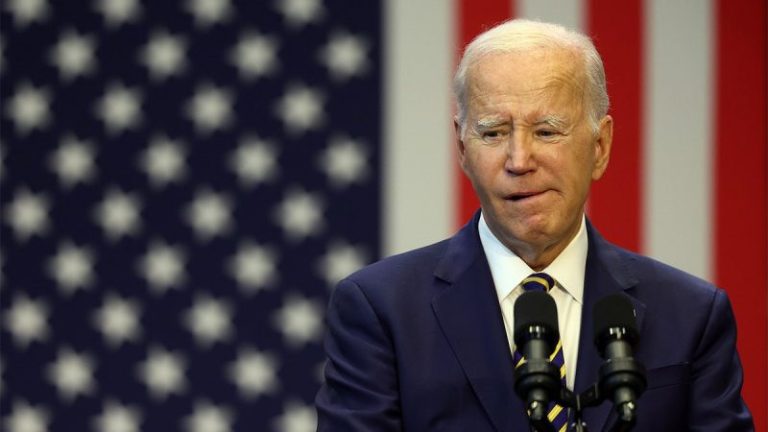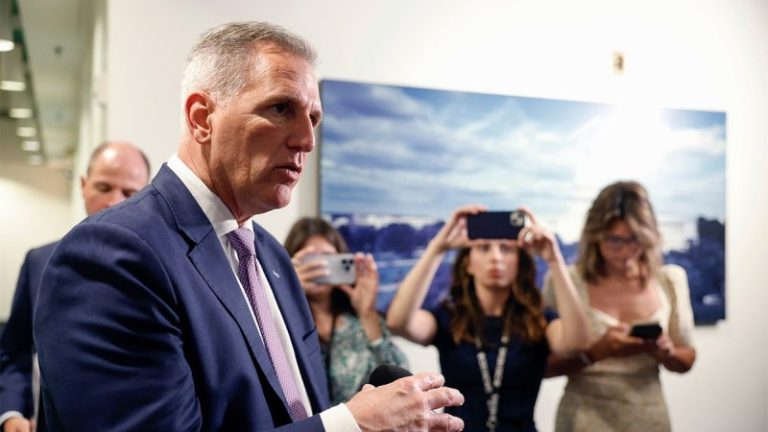I often rely on my crystal ball when Congress approaches a potential government shutdown or a debt ceiling crisis.
But I didn’t consult mine lately.
You don’t need a crystal ball to see that it’s likely the government shuts down this weekend.
DEMOCRATIC SEN. BOB MENENDEZ STEPS DOWN ‘TEMPORARILY’ AS CHAIRMAN OF SENATE FOREIGN RELATIONS COMMITTEE
The House and Senate appear to be talking past one another right now on divergent spending plans. And even if there wasn’t a chasm between the spending bills now before the House and Senate, the parliamentary mechanics of Capitol Hill would make it challenging at best to avert a shutdown. There’s not enough time. That fact alone may mean there’s almost no way for Congress to recover to fund the government before money expires at 12:00:01 am Sunday.
A bipartisan, 45-day Senate funding bill scored 77 yeas Tuesday night. It has the backing of both Senate leaders. But conservatives like Sen. Rand Paul, R-Ky., say they will make the Senate run all parliamentary traps and not allow speedy passage of the package. That’s because it includes money for Ukraine.
‘So U.S. government workers, get this,’ said Paul. ‘If they force a shutdown by forcing us to send more money we don’t have to Ukraine, they will in essence be saying ‘We’re going to continue to pay Ukrainian government workers, but not U.S. government workers.’ That is particularly galling.’
An effort by Paul to slow the process means the Senate could take until Saturday or Sunday to pass the bill, skipping through various parliamentary hurdles.
Senate Minority Leader Mitch McConnell, R-Ky., helped author the package. But House Speaker Kevin McCarthy, R-Calif., told McConnell he wouldn’t entertain the Senate bill in the House, no matter what.
‘I would like to see something much different,’ said McCarthy. ‘(They) put a focus on Ukraine and (didn’t) focus on the southern border. I think their priorities are backwards.’
Seventy-seven votes – more than three-quarters – is a substantial bloc of support for anything in the Senate. Sure, all it takes is one senator or a small group of senators to slow things down. But it’s rare for the Senate to conjure up that many votes on anything.
However, the Senate’s strength did little to impress House conservatives.
‘Seventy-seven senators are wrong,’ said Rep. Byron Donalds, R-Fla. ‘If you look at $33 trillion in debt, 77 senators have been wrong for a long time up here. Just because they come to some silly agreement over there that changes nothing about our country, does it mean that they’re right? That just means that they’re weak.’
McConnell defended the Senate’s approach which fell on deaf ears among House Republicans.
‘We can take the strategy approach and fund the government for six weeks at the current rate of operations or we can shut the government down in exchange for zero meaningful progress on policy,’ said McConnell. ‘Shutting down the government isn’t an effective way to make a point.’
Sen. Thom Tillis, R-N.C., said he opposed the Senate’s parliamentary move to advance a ‘shell’ of a spending package because the measure won’t prevent a shutdown.
TRIPLE HOUSE MELTDOWN ON DEFENSE BILL MAY MARK THE WORST RUN FOR A HOUSE MAJORITY IN MODERN HISTORY
‘We must avert a shutdown. That means a bill to fund the government needs to pass in both chambers with bipartisan support,’ said Tillis. ‘It makes absolutely no sense for the Senate to waste the rest of the week voting on a spending bill that is dead on arrival in the House. In fact, it guarantees a shutdown.’
Members of the bipartisan House Problem Solvers Caucus has a bill which Rep. Don Bacon, R-Neb., said would be a ‘better fit’ to address a potential shutdown.
‘I hope that will be a fallback or landing spot for people,’ said Bacon.
Why?
Because it’s unclear if McCarthy’s still unfinished, interim spending bill with border security can pass.
‘It’s a great question,’ said House Majority Whip Tom Emmer, R-Minn., ‘We’ll see what happens.’
Regardless, the Senate plan – or even the Problem Solvers caucus proposal could score 275-300 votes.
Some Republicans attributed McCarthy’s effort to placate the right to pressure applied by Rep. Matt Gaetz, R-Fla. Gaetz has touted calling for a new Speaker’s election should the California Republican drift too far from conservative principals or align with Democrats to avoid a shutdown.
‘This is just a pissing match between McCarthy and Gaetz,’ said one senior House GOPer. ‘That’s the whole reason the government could shut down. I don’t think he intends to use (his resolution to vacate the chair).’
Gaetz may say otherwise. But the Florida Republican hasn’t made his move yet.
This is what concerns centrist Republicans who represent districts carried by President Biden like Bacon. Moreover, there is a mother lode of about 200 House Republicans who are outraged at the tactics of a small, vocal few.
‘We should never let five or ten people push us around like this,’ said Bacon.
If you haven’t noticed, Republicans are essentially tussling with each other.
That said, after weeks of infighting, Republicans did finally coalesce around one subject: border security. McCarthy latched onto that after a lengthy impasse between his own lawmakers trying to advance bills onto the floor. McCarthy now wants President Biden to meet with him about the border – even though the Speaker never made that request dating back to late July.
‘The President needs to make a decision,’ warned Rep. August Pfluger, R-Tex. ‘If he wants to keep the government open, he needs to shut down the border. No border security, no funding.’
The border inflection point gave the GOP a rallying cry. But moderate Republicans who represent battleground districts fear the political impacts of a shutdown. Moreover, they also fear the wrath of ultra-conservative voters in a primary.
So some of these Republicans may need to have it both ways as the government funding deadline looms.
Senate Majority Leader Chuck Schumer, D-N.Y., called out the GOP.
‘In the House, Republicans have tried everything but bipartisanship,’ said Schumer. ‘The Speaker twisted himself into pretzels again, trying to avoid his responsibility of governing.’
So, there’s a standoff.
And some GOP members might be okay with a shutdown.
‘People in my district are willing to shut the government down for more conservative fiscal policies,’ said Rep. Greg Steube, R-Fla., on Fox.
Regardless, there’s not much time.
During an appearance on FOX Business, McCarthy was asked if he could keep the government open.
There’s a chance the government may not shutter early Sunday morning. But if that’s the case, the bills presently before the House and Senate don’t appear to be the legislative vehicles which would prevent a shutdown.
And for that, we’ll need a crystal ball.
Chad Pergram currently serves as a senior congressional correspondent for FOX News Channel (FNC). He joined the network in September 2007 and is based out of Washington, D.C.
This post appeared first on FOX NEWS










